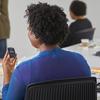Hi All,
I have been unwell over the last few years. It all started after contracting a nasty virus (Epstein Barr) after travelling to the Maldives.
Since then, I’ve suffered with feeling extremely tired all of the time, lacking energy, non refreshing sleep, waking up at night to pee and drink water.
I had a HBA1C test last year which was 38nmol which I believe is slightly high but ok. So the GP isn’t willing to re-test as the test from last year
rules it out.
A family member suggested recently that I invest in a glucose monitor as they strongly believe that I have diabetes.
Well its odd:
Upon waking - 8.5mmol
Before eating breakfast- 6.5mmol
1hour After breakfast - 10mmol
2hours after breakfast- 6.8mmol
Ok with lunch and dinner (didn’t go over 7.8mmol), before bed (having last eaten nearly three hours ago and no sugary drinks etc.(water)) - 9.6mmol
I find it slightly bizarre that I’m getting such high readings when I’d expect them to be around 6~.
Appreciate no one can diagnose me, but I figured that people here would know if these results are concerning and warrant me pushing my gp to do something or if they are in fact normal.
Thanks
I have been unwell over the last few years. It all started after contracting a nasty virus (Epstein Barr) after travelling to the Maldives.
Since then, I’ve suffered with feeling extremely tired all of the time, lacking energy, non refreshing sleep, waking up at night to pee and drink water.
I had a HBA1C test last year which was 38nmol which I believe is slightly high but ok. So the GP isn’t willing to re-test as the test from last year
rules it out.
A family member suggested recently that I invest in a glucose monitor as they strongly believe that I have diabetes.
Well its odd:
Upon waking - 8.5mmol
Before eating breakfast- 6.5mmol
1hour After breakfast - 10mmol
2hours after breakfast- 6.8mmol
Ok with lunch and dinner (didn’t go over 7.8mmol), before bed (having last eaten nearly three hours ago and no sugary drinks etc.(water)) - 9.6mmol
I find it slightly bizarre that I’m getting such high readings when I’d expect them to be around 6~.
Appreciate no one can diagnose me, but I figured that people here would know if these results are concerning and warrant me pushing my gp to do something or if they are in fact normal.
Thanks


